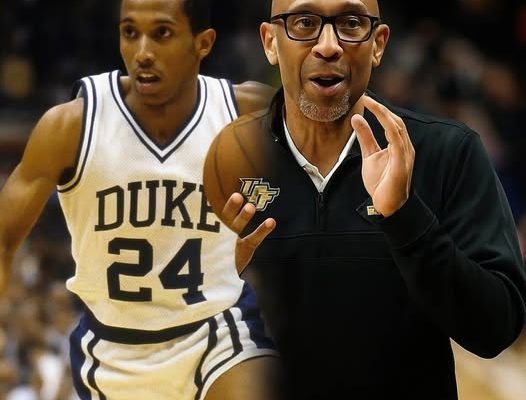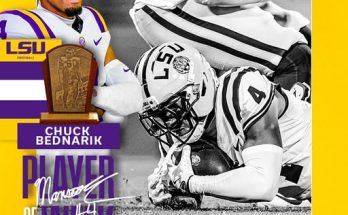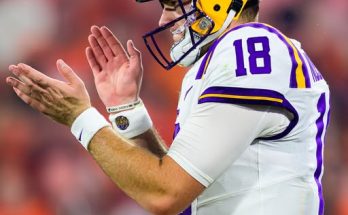**When Legacy Meets Tip-Off: The Powerful Story Behind Johnny Dawkins’ Emotional Return to Duke — and Why This Exhibition Game Feels Like Destiny**
The hardwood of Cameron Indoor Stadium has borne witness to countless moments of triumph, heartbreak, and legacy. But on an October evening in 2024, it will cradle something far rarer: a homecoming steeped in destiny. When Johnny Dawkins leads his UCF Knights onto the court for an exhibition game against Duke, it won’t just be a preseason tune-up—it will be a collision of past and present, a full-circle moment decades in the making. For Dawkins, this isn’t just a return to the program that shaped him; it’s a poignant reminder of how basketball, at its core, is about the people who make it matter.
To understand the gravity of this game, you must first understand Johnny Dawkins’ place in Duke lore. Long before he became a respected coach, he was the electric guard who helped lay the foundation for the Blue Devils’ ascent under a young Mike Krzyzewski. Dawkins arrived in Durham in 1982, part of a recruiting class that would change the trajectory of the program. By the time he graduated in 1986, he was Duke’s all-time leading scorer (a record later broken), a two-time All-American, and the engine behind Coach K’s first Final Four run. His jersey hangs in the rafters, a testament to a legacy etched in sweat and soul.
But Dawkins’ connection to Duke runs deeper than stats and accolades. He was more than a player; he was a bridge between eras. When Krzyzewski’s job security wavered in the early 1980s, it was Dawkins and his teammates who fought to validate their coach’s vision. Their loyalty and grit forged the culture that would later produce five national championships. Decades later, Krzyzewski would call Dawkins “one of the most important players in Duke history”—not just for his play, but for his heart.
That heart is why this exhibition feels like kismet. After a playing career that included nine NBA seasons, Dawkins transitioned to coaching, first as an assistant under Krzyzewski, then as the head coach at Stanford, and now at UCF. Along the way, he became a mentor to players much like his younger self—talented, hungry, and in need of guidance. His return to Cameron, even in an exhibition, is a reminder of how the game’s greatest victories aren’t always the ones on the scoreboard.
For Duke, this game is a chance to honor a legend while showcasing the next generation of Blue Devils. For UCF, it’s an opportunity to measure themselves against one of college basketball’s gold standards. But for Dawkins, it’s something far more personal. Walking into Cameron as a visitor will be surreal, a moment to reflect on the boy who became a man within those hallowed walls. The crowd’s ovation will carry the weight of memory—of practices that pushed him to his limits, of games that tested his will, of a coach who became a lifelong friend.
And then there’s the deeper narrative: the symmetry of Dawkins facing Duke at a time when his son, Aubrey Dawkins, is making his own mark in basketball. Aubrey, who played for his father at UCF, is now pursuing a professional career, continuing a family legacy intertwined with the game. The Dawkins name is woven into basketball’s fabric, a thread connecting generations.
This exhibition is also a testament to the enduring bond between Dawkins and Krzyzewski. Though Coach K has retired, his presence still looms large, and his influence on Dawkins is undeniable. Their relationship transcends basketball; it’s one of mutual respect, forged in the fires of building something greater than themselves. When they embrace at midcourt, it won’t just be coach and player—it’ll be a shared acknowledgment of how far they’ve come, together and apart.
Of course, there’s a game to be played. UCF, now in the Big 12, is no pushover, and Duke’s young roster will be eager to prove itself. But the final score will fade. What will linger is the emotion—the sight of Dawkins standing on the opposite sideline, the roar of the Cameron Crazies welcoming back one of their own, the unspoken understanding that some moments are bigger than wins and losses.
In a sport often defined by rivalry and competition, this game is a celebration of legacy. It’s a reminder that basketball, at its best, is about the people who pour their lives into it. Johnny Dawkins gave Duke his all as a player. Now, as a coach, he returns not as an adversary, but as a living testament to the program’s enduring spirit.
When the ball is tipped, it won’t just be a game—it’ll be a reunion, a thank-you, and a love letter to the place where a legend began. And for those lucky enough to witness it, it’ll be proof that some stories are written by destiny.



